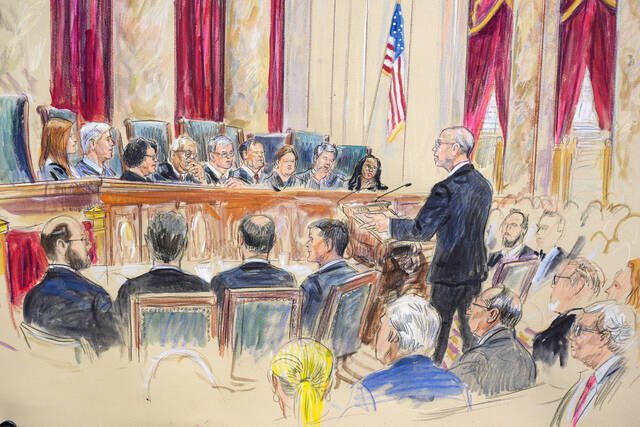In Washington, the Supreme Court seemed inclined to reject former President Donald Trump’s assertion of total immunity from being prosecuted for interfering in the election. However, several justices expressed concerns about the charges, which could lead to a long delay, possibly after the November election.
Most of the justices did not seem to support the idea of complete immunity that would prevent special counsel Jack Smith from prosecuting Trump for allegedly conspiring to overturn his 2020 election loss to Democrat Joe Biden. But during the more than 2 1/2-hour arguments in the court's first consideration of criminal charges against a former president, some conservative justices suggested that they might limit when former presidents could be prosecuted. This indicates that the case might have to be sent back to lower courts before any trial could start.
Justice Samuel Alito mentioned that “whatever we decide is going to apply to all future presidents.”
The timing of the Supreme Court’s decision could be as crucial as the result. Trump, the likely 2024 Republican presidential nominee, has been trying to postpone the trial until after the election. The later the justices issue their decision, the more likely he is to succeed. If Trump becomes president again, he could instruct the Justice Department to drop the case, or, as two justices suggested, pardon himself if convicted.
Following the confirmation of three Trump appointees, the conservative justices on the court have disregarded long-standing precedent on abortion and affirmative action. Now Trump is asking them to rule that one of the fundamental principles of the American system of government — that no one is above the law — should be rejected, at least as it applies to him.
Future consequences
The active questioning by all nine justices strongly indicated that the court was not heading towards a quick, unanimous decision that would allow a prompt trial to start.
Justices Neil Gorsuch and Brett Kavanaugh, two of Trump’s three high court appointees, and Alito stated that their concern was not the case against Trump, but rather the impact of their ruling on future presidencies.
Whenever Justice Department lawyer Michael Dreeben tried to focus on Trump’s actions, these justices intervened. Kavanaugh said, “This case has huge implications for the presidency, for the future of the presidency, for the future of the country.” Gorsuch mentioned, “The court is writing a decision ‘for the ages.’”
Justice Amy Coney Barrett, the other Trump appointee, appeared less receptive to the arguments put forward by Trump lawyer D. John Sauer, as she looked for a way for a trial to proceed.
Smith’s team is seeking a quick resolution. Typically, the court issues its final opinions by the end of June, about four months before the election. U.S. District Judge Tanya Chutkan, who would oversee the trial, said pre-trial matters could take up to three months.
The court has moved swiftly in previous cases involving presidential power, deciding the Watergate tapes case against President Richard Nixon just 16 days after arguments. Earlier this year, the justices took less than a month to unanimously rule that states couldn’t remove Trump from the ballot.
Trump, the first ex-president accused of crimes, had previously stated he wanted to be at the Supreme Court on Thursday. Instead, he was in a New York courtroom, facing trial on charges that he altered business records to hide damaging information from voters when he directed hush money payments to a former porn star to silence her claims of a sexual encounter.
Sauer contended that former presidents should have complete protection for their official actions. Otherwise, he said, politically driven prosecutions of former Oval Office occupants would become common, and presidents couldn’t effectively lead if they had to be concerned about criminal charges.
Lower courts have dismissed those arguments, including a unanimous three-judge panel on an appeals court in Washington, D.C.
Several justices focused on defining what constituted an official act and whether charges based on one should be dismissed.
Justice Elena Kagan at one point questioned whether a former president could avoid prosecution even if he ordered a coup or sold nuclear secrets. Sauer said prosecutions might not be allowed if those were considered official acts.
“That sure sounds bad, doesn’t it?” Kagan asked.



